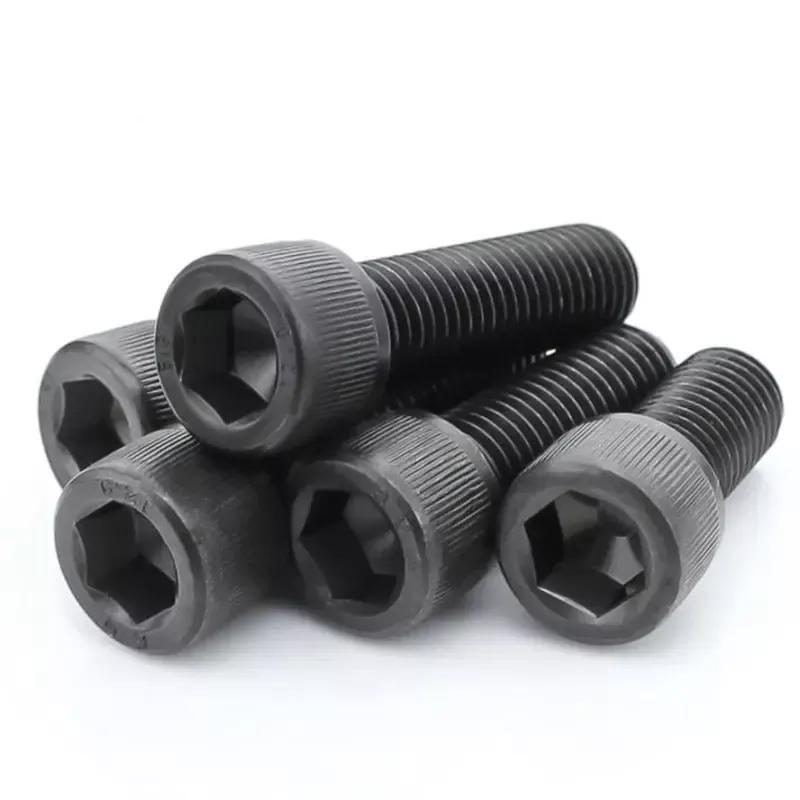Why Are Socket Screws So Essential in Modern Engineering?
2024-12-12
Socket screws are among the most commonly used fasteners in a wide range of industries, from construction to electronics. Their unique design and versatility make them a go-to solution for securing parts and components in various mechanical assemblies. But what exactly makes socket screws so essential in modern engineering, and why are they favored over other types of fasteners?
In this blog, we’ll explore the reasons why socket screws play such a crucial role in engineering and why they continue to be integral in the design and manufacturing of everything from machinery to consumer electronics.
What Are Socket Screws?
Socket screws are a type of fastener designed to be driven by a tool, typically an Allen wrench or a socket wrench, instead of the usual flathead or Phillips screwdriver. They are characterized by a cylindrical head with a hexagonal or square recess, which allows for a more secure and efficient grip when tightening or loosening the screw.
This unique design means that socket screws provide greater torque and are less likely to strip compared to traditional screws. They are often made of materials such as stainless steel, carbon steel, or alloy steel, depending on the application and required strength.
Why Are Socket Screws So Important?
1. Enhanced Grip and Torque
One of the primary benefits of socket screws is their ability to handle high levels of torque without slipping or becoming damaged. The recessed head of the socket screw allows for a better grip, ensuring that the tool fits securely into the screw. This is particularly important when dealing with high-strength materials or tight spaces where precision and power are needed.
Socket screws are ideal for applications requiring substantial force, such as machinery, automotive parts, and heavy-duty equipment. Their design minimizes the risk of tool slippage and damage, leading to a more efficient and safer operation.
2. Compact and Space-Saving Design
Socket screws offer a compact solution for fastening components in tight spaces. Because their heads are smaller and recessed, socket screws can be installed in areas where traditional screws might not fit. This is particularly advantageous in situations where space is limited, such as in electronics, automotive engineering, and small machinery.
Their low-profile design allows for the use of smaller and more precise tools, making them easier to manipulate in confined or hard-to-reach spaces. This feature is especially useful when assembling intricate components, such as those found in consumer electronics and computer hardware.
3. Versatility Across Industries
Socket screws are used in a variety of industries due to their versatility and strength. They can be found in applications ranging from delicate electronic devices, like smartphones and laptops, to heavy machinery, vehicles, and aerospace equipment. The ability to use socket screws in different environments—whether for small-scale projects or large, industrial applications—makes them indispensable.
In the automotive and aerospace industries, for example, socket screws are used to fasten parts that experience high levels of vibration and stress. Their ability to maintain a secure hold under extreme conditions makes them particularly well-suited for these demanding environments.
4. Prevention of Stripping and Wear
One of the most common issues with traditional screws is the tendency for the screw head to strip, especially when excessive force is applied or the wrong tool is used. This can lead to the screw becoming stuck or difficult to remove, which complicates maintenance and repairs.
Socket screws are less prone to stripping because the tool used to tighten them fits more securely into the recess. This feature reduces the likelihood of wear on both the screw and the tool, ensuring a longer-lasting, reliable connection. Additionally, their recessed design makes them less vulnerable to damage during installation, which contributes to the longevity of both the screw and the overall assembly.
5. Increased Safety and Security
In many applications, especially those involving high-security environments or critical mechanical systems, safety and reliability are of the utmost importance. Socket screws offer a more secure fastening option than other types of screws because their heads are less likely to come loose due to vibration or other external forces.
They are also ideal for tamper-resistant applications. With a recessed head, socket screws are more difficult to manipulate without the correct tool, providing an added layer of security in situations where unauthorized access or tampering must be prevented.
6. Ease of Use and Installation
Socket screws are designed for easy installation and removal. Their recessed head allows for a more stable and controlled driving process, even in hard-to-reach areas. The use of tools such as Allen wrenches or socket wrenches makes the installation process faster and more efficient, reducing the time needed for assembly.
This ease of use also means that socket screws can be installed with greater precision, which is critical in industries that require high-quality, tight-fitting components. Whether you’re assembling machinery, electronics, or other equipment, socket screws allow for quick and accurate installation without the risk of damaging surrounding components.
Applications of Socket Screws
Socket screws are used in a variety of applications across different industries. Some of the most common include:
1. Electronics and Electrical Devices
In the electronics industry, socket screws are commonly used to assemble components such as circuit boards, smartphones, and computer hardware. Their small size and ability to provide a strong, secure hold make them ideal for fastening delicate electronic components.
2. Automotive Industry
Socket screws play a crucial role in automotive assembly. They are used to secure parts such as engine components, wheels, and interior fittings. The high torque resistance of socket screws ensures that these parts remain securely fastened, even under the stress and vibrations encountered during operation.
3. Aerospace Engineering
In aerospace applications, where reliability and safety are paramount, socket screws are used to fasten parts that require a high level of precision and strength. Their ability to withstand high levels of stress and vibration makes them essential for securing critical components in aircraft and spacecraft.
4. Heavy Machinery and Industrial Equipment
Socket screws are commonly used in heavy-duty machinery, industrial equipment, and construction tools. Their ability to handle high loads and provide a firm grip in rugged conditions makes them ideal for these demanding environments.
Conclusion
Socket screws are a critical component in modern engineering due to their durability, versatility, and ability to provide a secure, tamper-resistant fastening solution. Whether used in delicate electronics, automotive parts, or heavy machinery, socket screws offer numerous advantages, including greater torque handling, space-saving design, and resistance to stripping.
Their applications span across various industries, proving their importance in both everyday products and complex machinery. As technology continues to evolve and industries demand higher levels of precision and security, the use of socket screws will only continue to grow, solidifying their place as a staple fastener in the world of engineering.



